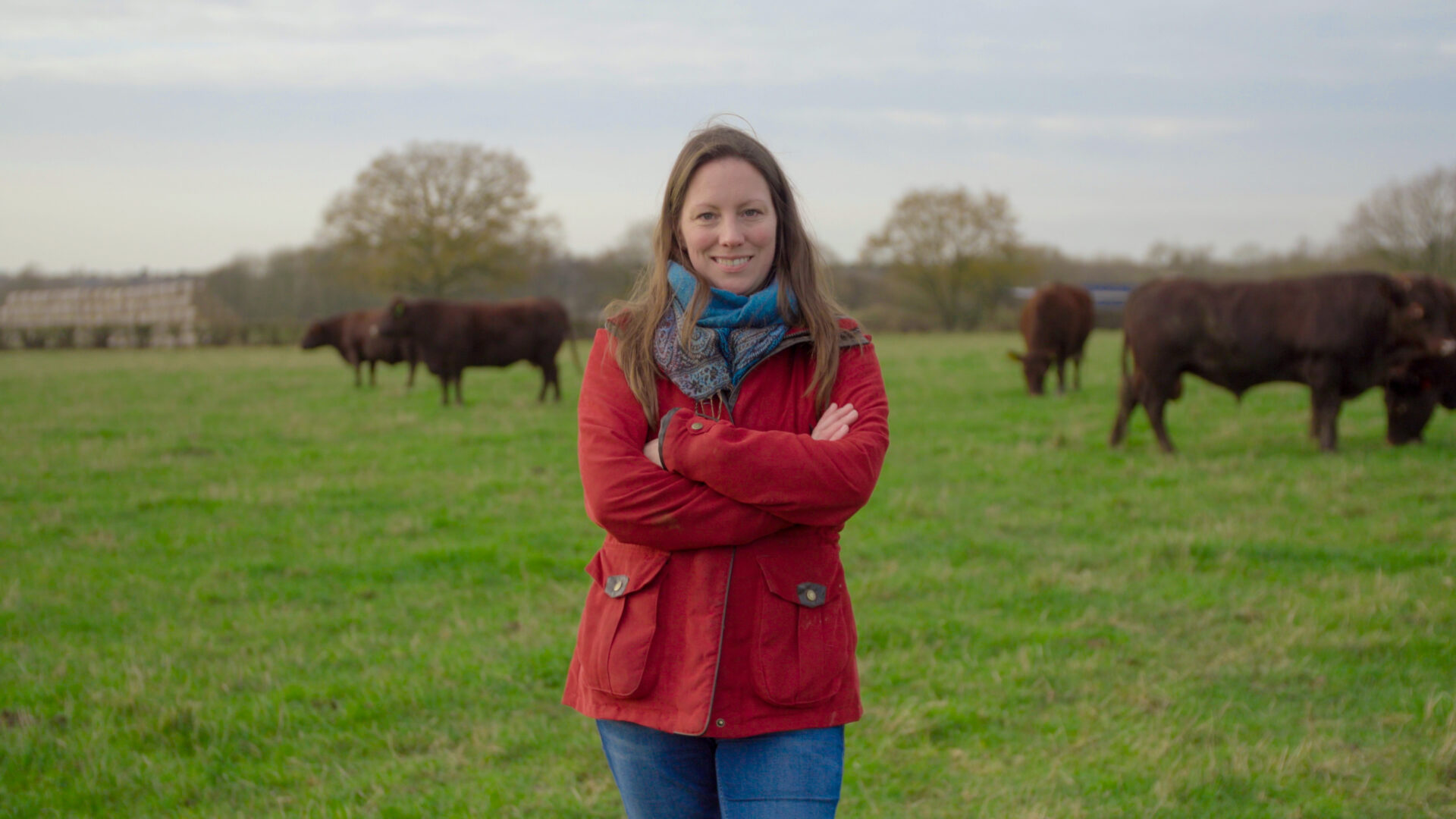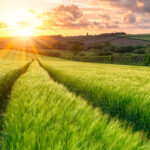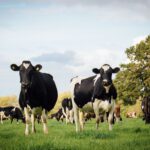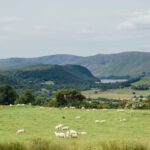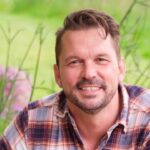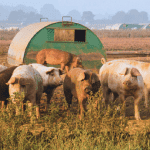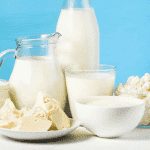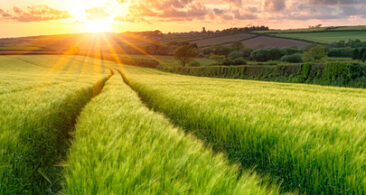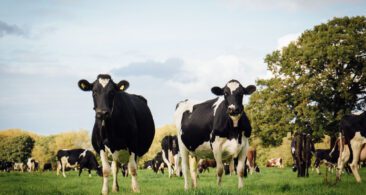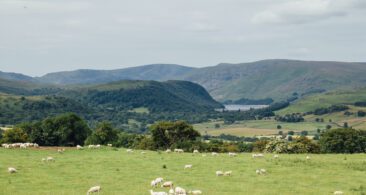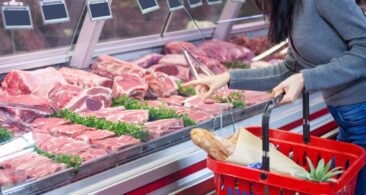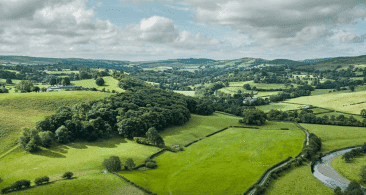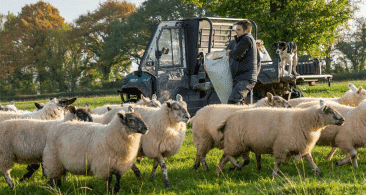Farmer Stories
Hear from farmers, who are leading the way to take greater care of nature
Managing land in a way that supports nature is a key responsibility of the modern-day farmer, whether that’s planting trees and hedgerows, growing wildflowers for bees and other pollinators or maintaining grazing land that support insects, mammals and birds. The carbon footprint of our beef, lamb and milk is lower than the global average* and reflects the hugely important and positive work our farmers are putting in every day.
Find out more about the environment here.
Did you know?
Did you know British farmers are the custodians of almost a million hectares of woodland and forests?
Plus, since 2005 farmers have planted over 30,000km of hedgerows – helping biodiversity.
English farmers also help provide 19,000 hectares of meadows, which provide pollen and nectar sources.
WORKING IN HARMONY WITH NATURE
Charlie Beatty, UK farmer tells us how she’s playing her part in helping to reduce dependency on artificial fertilisers and pesticides
“I care about the environment as much as anybody. Everybody needs to do their bit. Sustainability for me is protecting the environment for the future.
One example of how we farm is using sheep to graze our crops. The sheep produce natural dung fertiliser and eat the diseased leaves.
The livestock and crops work well together reducing dependency on artificial fertilisers and pesticides.”
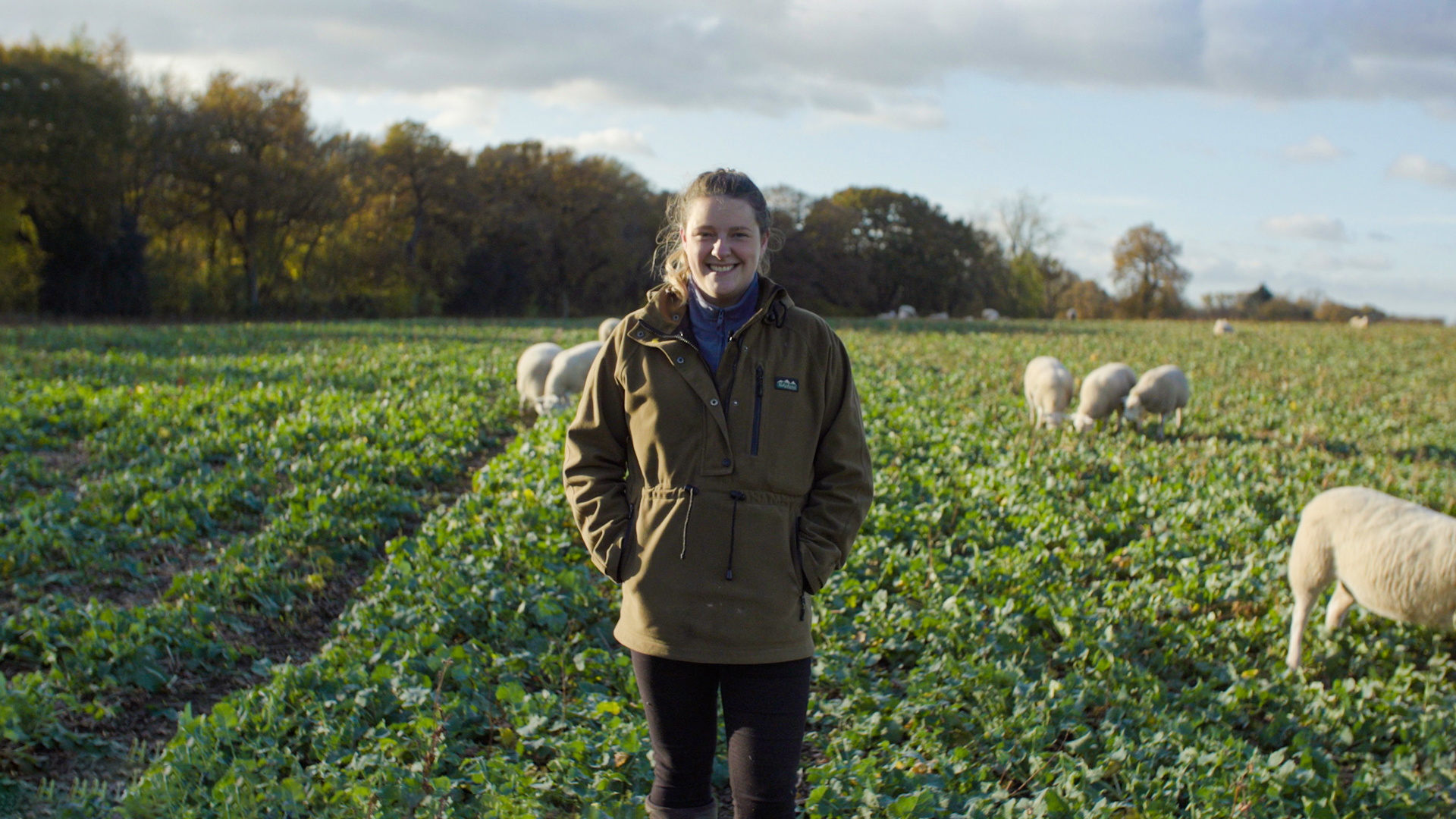
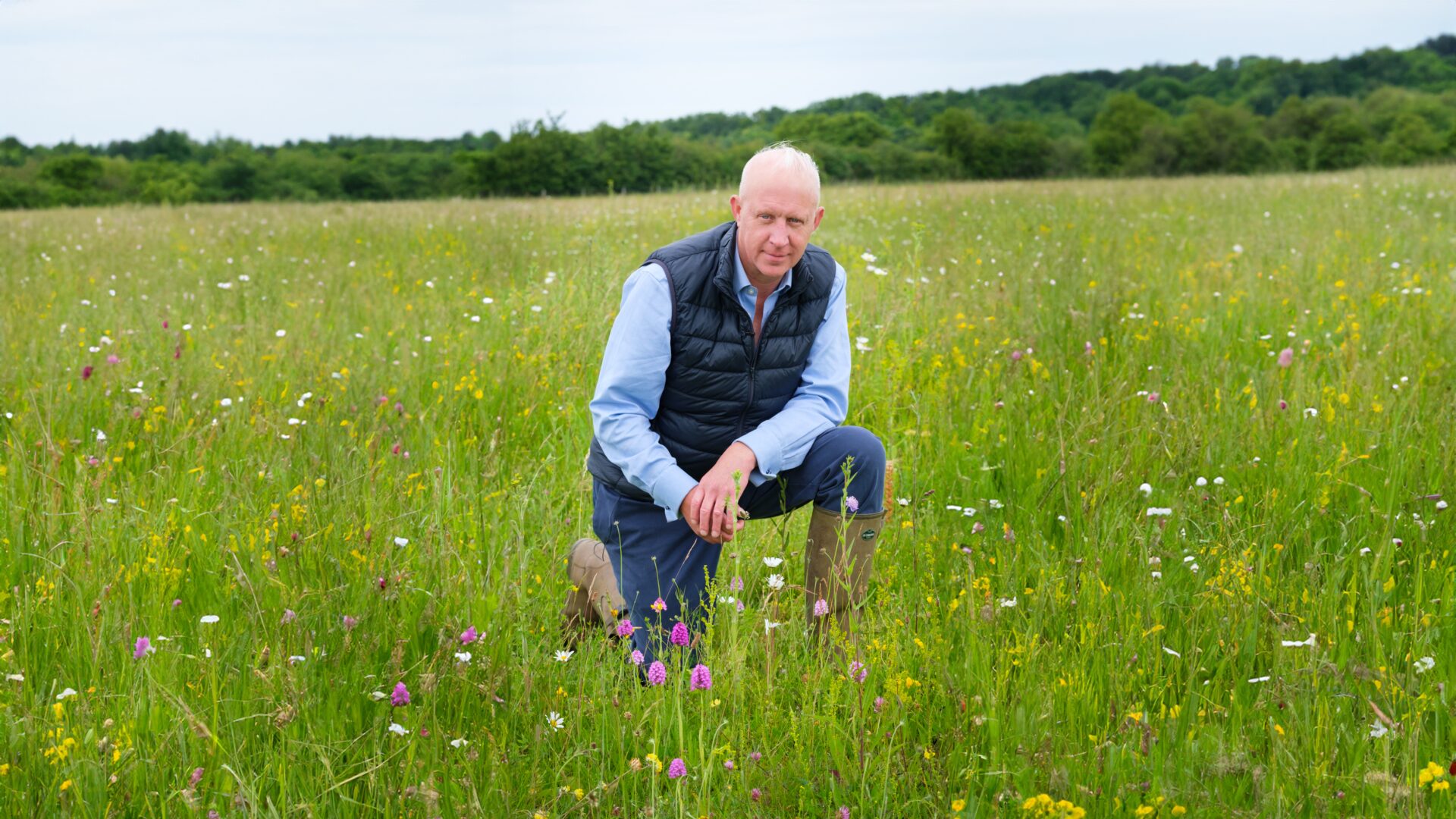
Jake Fiennes feels incredibly privileged to look after the land of Norfolk’s Holkham Estate. Home to a variety of sheep and cattle, he maintains the varied landscapes to work in harmony with nature.
By grazing sheep, their poo provides the perfect natural fertiliser, meaning he is able to use less chemical fertiliser on farm*, which increases carbon levels in the soil and supports its biodiversity.
Creating varied grass heights is important for pollinators, insects and birds, that’s why Jake uses Belted Galloway cows to create this unique habitat. This method of grazing has boosted the Estates population of species like the lapwing and the skylark.
The Estates 400km of hedges are critical habitat corridors and get unique treatment to ensure they can provide food and shelter all year round. This creates a mixed of habitats which has boosted the population of bees, butterflies and birds like the yellow hammer on the farm.
*In the last 20 years, nitrogen fertiliser use in Britain has fallen by 32% (British survey of fertiliser practice 2003-2023).
Silas Hedley-Lawrence is a passionate believer in working in harmony with nature on his farm in Oxford.
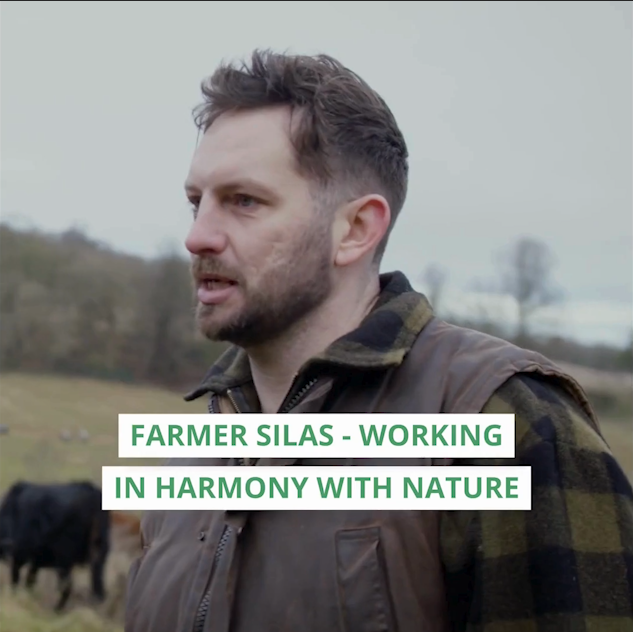
“I had this big light bulb moment about 10 years ago and it really kind of changed my mindset around how I produced foods and beef and grazed my pastures. And I figured if you work with nature and you treated your farm as an ecosystem, you’ve got more carbon and energy and water and minerals through your system. You start to improve soil health. And when you do that, your pasture gets more productive, it gets more diverse and your cattle benefit from that, you can spend less on inputs, and you actually get more production out of your farm just by working with nature in that way.”
The UK Soy Manifesto is a commitment to ensure all physical shipments of soy to the UK are deforestation free by 2025.
The UK’s food and farming industry has committed to only using sustainable soy in animal feed. Soyabean is a highly nutritious protein source for both humans and livestock but unsustainable soy can contribute to deforestation. By committing to this pledge, we can help protect our planet for future generations.
The UK soy Manifesto
Anna Blumfield, UK livestock farmer tells us how she reduced the use of soy on her farm:
“You may have heard that livestock farming contributes to deforestation because of unsustainable soy in animal feed. But, soy currently makes up as little as 5% of UK beef cattle feed.
“On our farm we don’t use any soy to feed our animals. Instead, we grow a mix of different grasses, clovers and herbs to feed them all year round providing them with all the nutrients they need, sustainably.”
